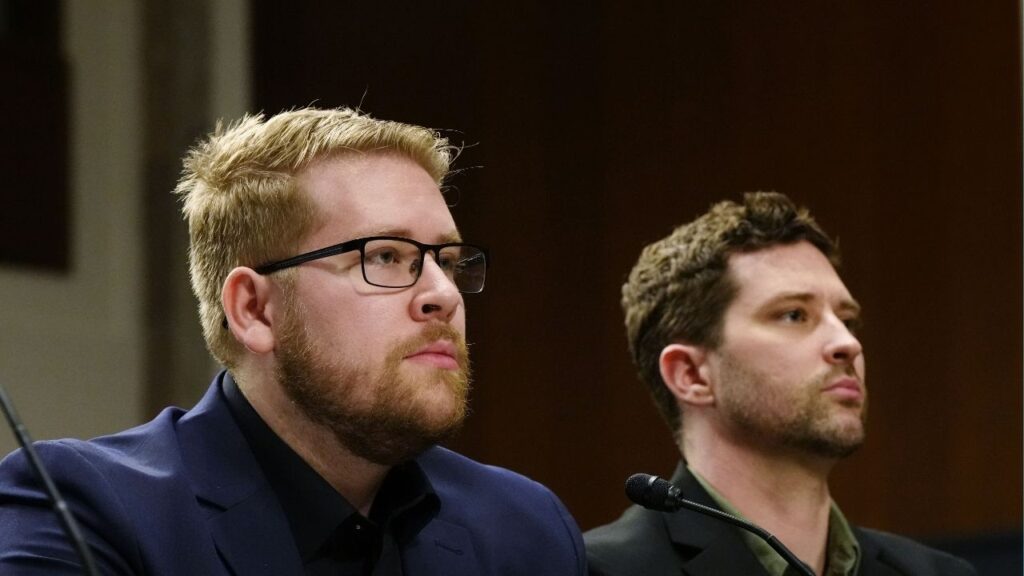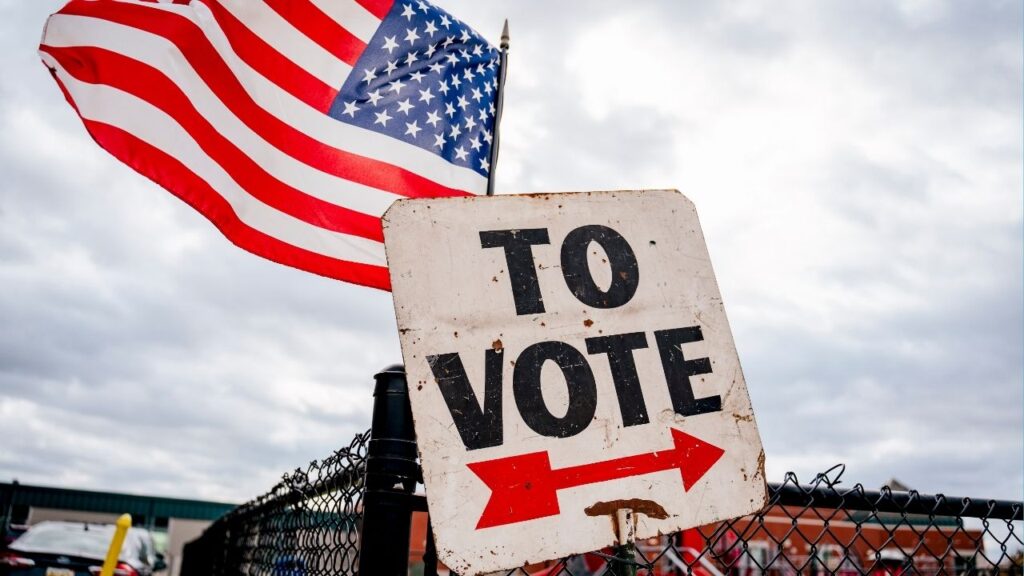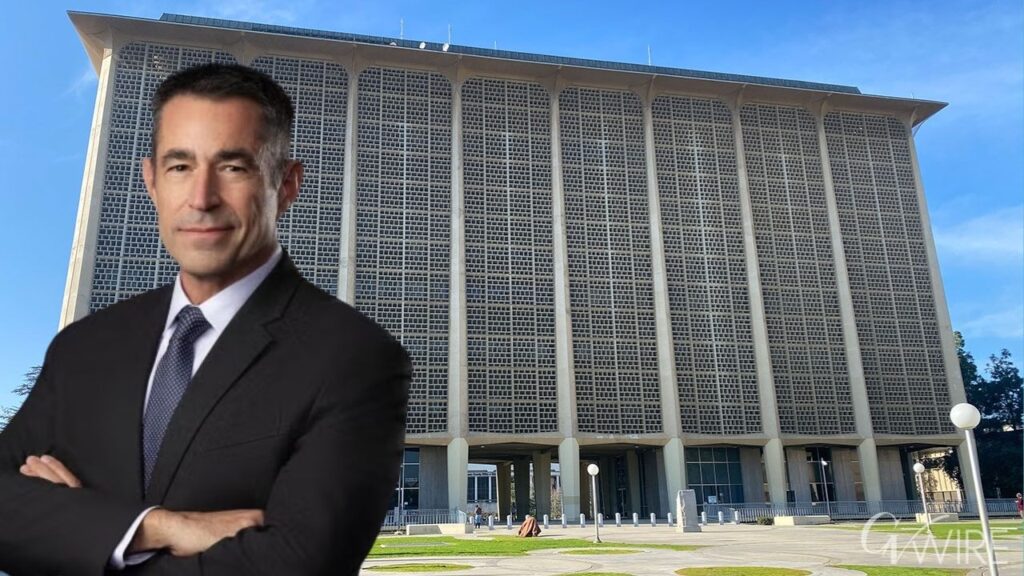Share
COLORADO SPRINGS, Colo. — Yolanda Avila and Andres Pico are friends who sit next to each other on the Colorado Springs’ city council. But politically the two couldn’t be further apart — Avila is a durable Democrat and Pico an unflinching Republican.
Last year, as about two-thirds of Latinos backed Democrats, Hispanic women were 9 percentage points more likely to vote for them than Hispanic men, according to AP VoteCast, a national survey of more than 115,000 midterm voters, including 7,738 Latinos. Though Hispanics started from a more Democratic baseline — 61% of men still backed that party’s candidates in 2018 — the gender divide in the group was comparable to the split among white men and women.
Data from Pew Research Center shows the gap has widened since 2012.
“You do see the Latino population reflect the same divides as among the U.S. population as a whole,” said Mark Hugo Lopez of the Pew Hispanic Center. “All these pieces begin to tell a story of integration.”
Immigrants From Latin America Have Increasingly Been Women
The emerging divide highlights the complexity of what is now the nation’s largest minority group before a presidential election where immigration and identity will be core issues.
President Donald Trump is hoping that his inroads among Hispanics will help him win the pivotal swing state of Florida, and possibly provide enough support to threaten Democrats in states like New Mexico and Nevada. Still, the gender gap has traditionally helped Democrats because women are more likely to vote than men, so that party benefits more from its disproportionate support among women.
Over the past two decades, immigrants from Latin America have increasingly been women, often bringing children north, sometimes trying to rejoin partners who left earlier, when Latin American immigration to the United States was predominantly male. Newer arrivals in the country are more likely to vote Democratic when they attain citizenship.
Additionally, Hispanic women have become more likely to earn college degrees than their male counterparts.
“Latinas have a much more positive relationship with U.S. institutions like schools,” said Jessica Lavariega Monforti, a dean at California Lutheran University who has studied the Latino gender gap and noted Hispanic men have higher rates of incarceration. “For Latino men in particular, and for a lesser extent Latinas, this is about wrapping yourself up in American identity, wrapping yourself in the flag,” she said of men supporting the GOP.

The Split Is Evident Among the Elected Hispanic Officials in Colorado Springs
Trump, and his alpha-male projection of masculinity, also has appeal. “There is a certain ‘manliness’ that comes with being part of the Republican Party” now, Monforti said.
In Las Vegas, Jesus Marquez, a Trump-supporting talk radio host, says he notices that people backing the president who call into his Spanish-language show lean male. He said there’s been considerable social pressure for Latinos of all genders not to admit to backing Trump.
“Males might be a little more outspoken on that,” Marquez said.
Jacqueline Armendariz, a Democratic organizer, has seen the gender gap among Latinos firsthand while working for an abortion rights group along the Texas border. The group was almost all Hispanic women. “A man can feel the luxury of feeling that’s not related to their own life-and-death situation,” Armendariz said of abortion rights.
Armendariz noted that, in today’s polarized political world, voters are constantly being forced to choose sides. “Is machismo a factor? Maybe,” she said. “For that to translate into what we see in voting data right now doesn’t surprise me.”
The split is evident among the handful of elected Hispanic officials in Colorado Springs, a conservative city 70 miles south of Denver. The three elected Republicans in the county are all men — Pico, county commissioner Longinos Gonzalez and a state legislator, Dave Williams. Avila, for whom Armendariz once worked, is the only Democrat and only woman.
Avila and Pico’s Differing Political Views Don’t Lead to Many Conflicts
Pico, 68, has considered himself a Republican ever since he joined the military decades ago. “I always found conservatives would find a way to solve a problem and Democrats would find a way to feel good about it,” the retired Naval flight officer said.
“I’ve always felt the Democratic Party did look after the poor, the struggling and was more inclusive in every area,” Avila said.
Unlike what happens in Washington, Avila and Pico’s differing political views don’t lead to many conflicts on the nonpartisan city council. But Pico is supportive of gun rights, opposed to abortion rights, skeptical of climate change and backs Trump while Avila supports gun control and abortion rights, believes in climate change and opposes Trump.
Trump’s restrictive immigration policy has become a national flashpoint, though it doesn’t seem to have affected his support among Latinos — roughly a third of them have backed the Republican through his administration, about the same rate as during previous decades.

Avila Notes That Trump Has Tried to Restrict Legal Immigration
To Pico, there’s nothing wrong with being tough on illegal immigration. “There’s an awful lot of legal immigrants who dislike illegal immigration,” said Pico, whose family has been in the United States for several generations. “Conservatives, including Hispanics, are opposed to illegal immigration.”
Avila notes that Trump has also tried to restrict legal immigration and denigrated “unskilled” immigrants and Latinos repeatedly over the past several years. She has a fresher family connection to the trauma of immigration and racism than Pico — in the 1930s, Avila’s father, a U.S. citizen, was deported from Kansas to Mexico at age 18 during a U.S. government roundup of hundreds of thousands of immigrants and citizens of Mexican descent alike.
Avila’s father rebuilt his life in Mexico and started a family, but when he received a letter drafting him into the U.S. Army to fight in World War II he agreed to return with his new wife and children. Now Avila is horrified by images of immigrant children caged under the Trump administration. “My heart bleeds for the immigrants,” she said.
Though she knows many Latino Republicans, Avila says that, intellectually, “it’s hard to understand” how Hispanics can back Trump’s party. At the same time, she speaks warmly of Pico and acknowledges they are driven by differing ideals on some issues.
“Just like I’m so true to my values, Andy is, too,” Avila said.
[activecampaign form=29]
Categories

Renee Good’s Relatives Speak to Lawmakers in Washington

















